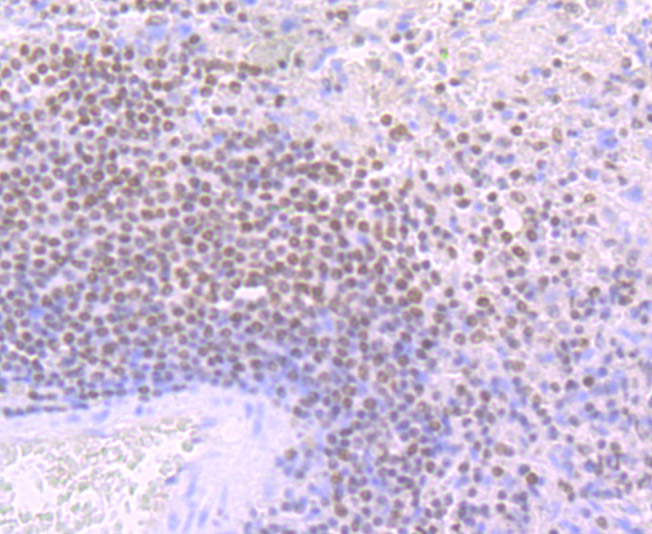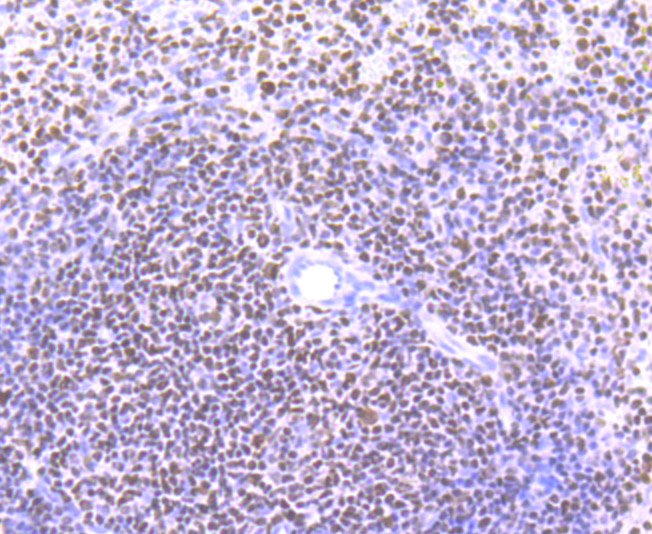Ikaros family members, including Ikaros and Helios, are nuclear factors that colocalize with DNA replication machinery components in higher-order chromatin structures and respond to signaling events, such as T cell activation. Helios and Ikaros bind to similar DNA sequences, and they function as hemopoietic-specific transcription factors. Members of the Ikaros family contain zinc-finger domains that are involved in DNA-binding and in the formation of homodimers and heterodimers between Ikaros family members. Expression of Ikaros is primarily detected in the thymus and spleen, where it is essential for regulating T cell specific gene transcription and for the differentiation and commitment of early hemopoietic progenitors to the B and T lymphoid lineages. Similarly, Helios expression is detected primarily in T cells and in the earliest embryonic hemopoietic precursors and in adult stem cells. Ikaros and Helios also appear to regulate cell cycle entry by inducing transcriptional repression under varying conditions and, thereby, mediate T cell activation and lL-2 mediated signaling events.





